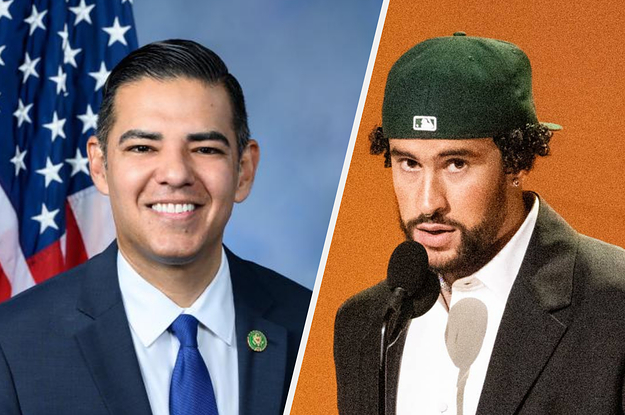Rep. Robert Garcia has expressed his disappointment with CBS for their handling of captioning Bad Bunny’s performance at the Grammys. The California Democrat criticized CBS for not providing Spanish-language closed captions during Bad Bunny’s performances and speech. Bad Bunny started the Grammys with a mashup of his songs “El Apagón” and “Después de la Playa” from his album Un Verano Sin Ti, which later won the award for Best Música Urbana Album. However, during his Spanish-language tracks, the captions displayed “[SINGING NON-ENGLISH]” and during his acceptance speech, it said “[SPEAKING NON-ENGLISH].”
In an open letter to CBS Entertainment President and CEO George Cheeks, Rep. Garcia emphasized the need for CBS to address the failures that led to this mistake and take serious measures. He argued that CBS should treat Spanish speakers living in the U.S. with equal respect and consideration as their English-speaking viewers. Rep. Garcia believes that CBS’s use of “[NON-ENGLISH]” as a reminder that Spanish is not given the same importance as English.
CBS followed the industry standard in the U.S. by captioning the performance in English. The term “speaking non-English” is commonly used in captions, although it is now being questioned for its implications. While English is the dominant language in the U.S., Rep. Garcia argues that Spanish speakers deserve equal treatment and recognition, especially when a record-breaking Latino artist like Bad Bunny is performing on a major stage like the Grammys.
The issue raised by Rep. Garcia highlights the larger conversation about inclusivity and representation in the media. It is essential for major networks like CBS to consider the diverse audience they cater to and provide appropriate and inclusive captions for non-English performances. By not offering Spanish-language closed captions, CBS missed an opportunity to show respect and recognition to the millions of Spanish speakers in the U.S.
The incident involving Bad Bunny’s performance at the Grammys serves as a reminder that there is still work to be done in ensuring equal treatment and representation for all communities, including non-English speakers. It is crucial for networks and media outlets to understand the importance of providing access and inclusivity, not just for English-speaking viewers, but for everyone. Rep. Garcia’s letter to CBS calls for accountability and urges the network to take steps to rectify this mistake and prevent similar incidents from happening in the future.
In conclusion, Rep. Garcia’s disappointment with CBS for their mishandling of captioning Bad Bunny’s performance at the Grammys highlights the need for equal treatment and recognition of non-English speakers in the media. The incident sparks a larger conversation about inclusivity and representation, urging networks like CBS to consider the diverse audience they cater to and provide appropriate captions for non-English performances. By not offering Spanish-language closed captions, CBS missed an opportunity to show respect and recognition to the millions of Spanish speakers in the U.S. This incident serves as a reminder that there is still work to be done in ensuring equal treatment and representation for all communities. Rep. Garcia’s letter calls for accountability and urges CBS to address this mistake and prevent similar incidents from happening in the future.









